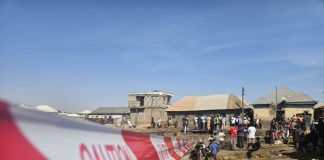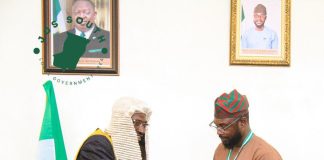In a bid to adapt to evolving conflict dynamics exacerbated by social media and ensure more responsible reporting, journalists in Jos, Plateau State, underwent a comprehensive one-day workshop on Conflict-sensitive Reporting for Media Practitioners.
The workshop, facilitated by Peace Action for Rapid, Transformative Nigerian Early Response (PARTNER), a USAID-funded program by Mercy Corps, aimed to equip media practitioners with the necessary skills to incorporate conflict sensitivity guidance into their reporting with participants drawn from the plateau Peace Media Network.

Danjuma Saidu Dawup, the Chief of Party for PARTNER, emphasized the need to recognize the changing context and dynamics of various communities, especially in light of social media’s influence on conflict dynamics. He stressed that conflicts often spill from online spaces will ripple effects on offline dynamics, either exacerbating tensions or fostering peace, underscoring the importance of collaboration between media and peace-building organizations.
The training sought to foster a symbiotic relationship between media and peace-building initiatives, allowing for the dissemination of peace messages to a wider audience. Dawup expressed expectations that the media would utilize their platforms to reach communities beyond the scope of traditional interventions, leveraging their influence to promote peace.

Chrysantus Lapang, the Mercy Corps’ Early Warning and Early Response (EWER) Technical Manager for the PARTNER project, highlighted the critical role of journalists in conflict prevention and resolution. He emphasized the importance of understanding conflict sensitivity and underlining indicators, as journalists serve as primary communicators to the public.
Lapang emphasized that journalists play a pivotal role in shaping public perception and behavior through their reporting. By adopting conflict-sensitive reporting practices, journalists can help alleviate tensions and create an environment conducive to peaceful conflict resolution.
Furthermore, Lapang underscored the role of journalists in early warning and response, noting that their timely and accurate reporting can prevent misinformation and disinformation from fueling violence. He emphasized the need for journalists to report on early warning indicators, enabling authorities to address potential conflicts before they escalate.

The workshop provided journalists with valuable insights and tools to navigate the complex landscape of conflict reporting, with a focus on promoting peace, understanding, and responsible journalism. Also encouraging collaborative efforts between media practitioners and peace-building.










